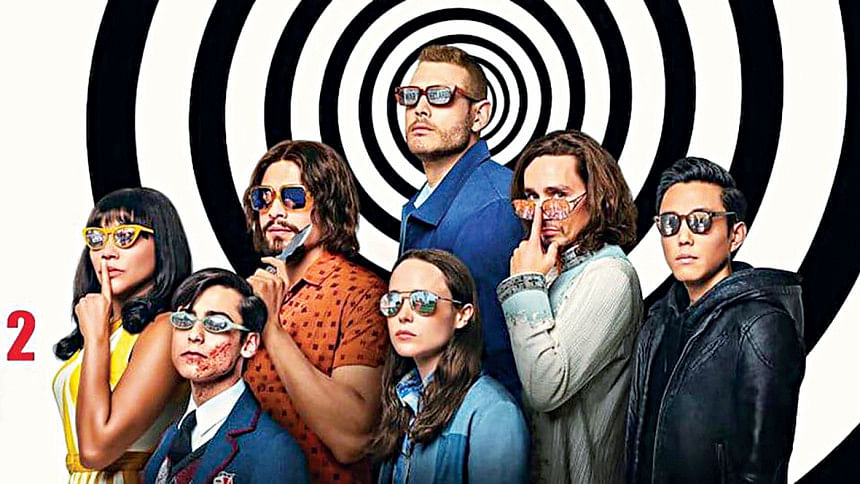The Umbrella Academy: Now is the best time to join the fandom

The market for superhero films, series and games had been somewhat oversaturated; as the few new creators who tried to enter it fell somewhat short of the mark. The Umbrella Academy, originally created as a comic book series by artist and My Chemical Romance frontman Gerard Way, was a surprise hit when its first season came to Netflix.
A surprisingly inspired set of characters are what differentiated the series in its original run. The plot is fantastically quirky – 43 infants are inexplicably born at the same time in the mid-20th century, with their mothers not being pregnant even a few minutes before their birth. Billionaire Reginald Hargreeves seeks and adopts 7 of these children, and trains them to be a family of superheroes. Hargreeves is a seemingly cold-hearted father, not even bothering to name the children, instead giving them numbers.
Without spoiling the story, I will just say that the first season of Umbrella Academy was an energetic homage to what a superhero themed series should feel like, albeit held back somewhat by the tonal struggle of its own dour family drama. Season 2, however, eliminates all of that almost entirely, while keeping the "impending apocalypse" theme and its near-fanatical violence.
The siblings – Luther, Diego, Klaus, Alison, 5 (He did not bother changing his name), Ben and Vanya, all have distinct superpowers, some absurdly more powerful than the other. Luther, for instance, has super-strength, but the degree is somewhat punitive compared to 5, who can jump through space and time. Diego is adept at hand-to-hand combat, and can curve a knife to any trajectory, while Alison can 'rumor' anyone into doing anything she wants, including suicide.
What makes The Umbrella Academy work are not the superpowers themselves, but the dynamics between the characters. Klaus's relationship with his deceased brother, Ben, transcends almost every action scene that the series throws at us, while Five, brilliantly played by Aidan Gallagher, steals the show time and time again as a 58 year old man trapped in a 13 year old's body due to a botched time-travel attempt.
Ellen Page is the cornerstone of the show, as the seasoned actor redefines herself in the role of Vanya, her internal struggle with seemingly 'non-existant' powers and loneliness, culminating in a cataclysmic reaction that changes history forever. In the second season, the creators brilliantly portray her tabooed relationship with Sissy Cooper, as well as the largely unlikeable Luther's strong redemption arc.
Simply put, you start watching The Umbrella Academy for the superpowers, but stay for the characters. You get mindless violence and emotional tearjerkers, feeding off each other. Every other moment is iconic, largely helped by the intensely pleasing musical score. The villians throughout the series – Hazel, Cha-Cha, The Handler, The Swedes and the entire 'commission' – have motivations which are utterly believable, even amidst their cartoony demeanor.
While everyone else is calling it "The answer to X-Men", I would label it as a question posed to all other superhero projects on cable TV – can it be outdone? I would predict The Umbrella Academy's much-awaited third season to take on the likes of comic giants Marvel and DC, in terms of popularity.

 For all latest news, follow The Daily Star's Google News channel.
For all latest news, follow The Daily Star's Google News channel. 



Comments